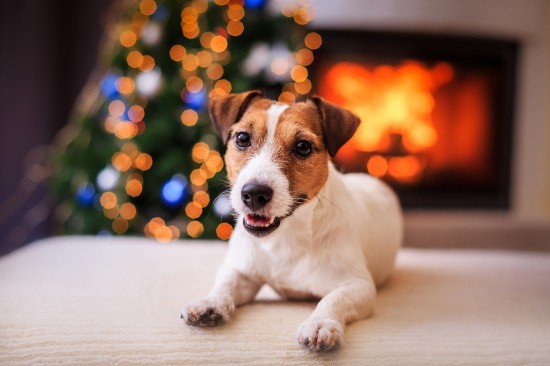

Every January, most of us reflect on the year that has just passed, and consider potential improvements and changes that we would like to make in our lives for the coming year: New Year’s resolutions. As a dog owner, it is a great idea to make some resolutions for your dog as well, in order to improve their health, happiness and general wellbeing, and to give yourself something of a boost too. In this article, we will make some suggestions of things to review and pledge to improve in terms of the way that you care for your dog, both for the coming year and for all of the years to come. Read on to learn more!
Once you have found a diet that works well and suits your own dog, you likely don’t give much thought to their food, other than providing it and stocking up on your dog’s favourites! January is a great time to review your dog’s feeding protocols, what they eat, when they eat and how much they eat, in order to ensure that you keep your dog in peak condition and fulfil all of their nutritional requirements.
First of all, check to ensure that your dog food is appropriate for your dog’s age, activity levels and health, and that you are feeding it in accordance with the guidelines. Make sure that your dog is fed at the same time each day, and that their meals are divided into two or three portions per day, and not just one large meal.
Finally, keep a tally of how many treats and snacks your dog consumes, and see if this might need a little cutting back.
Pledge to dedicate just an additional fifteen minutes per day to your dog’s exercise regime, and they will reap the benefits in terms of their health and fitness. This extra fifteen minutes can simply mean a slightly longer walk than previously, or a dedicated time to play, run and let your dog have fun out of doors over and above that which they enjoyed previously.
It is strongly recommended that you get your dog used to having their teeth cleaned and inspected a couple of times per week while they are still young, but this is one element of canine care that is very widely overlooked! Make 2015 the year when you really commit to begin a care regime for your dog’s teeth, and get them used to having their teeth brushed.
This can help to keep their teeth healthy and strong well into old age.
Are you sure that your dog’s vaccinations are up to date, and that they are flea treated and wormed in accordance with your vet’s guidelines? Keep a diary or calendar of your dog’s treatments and what products you use, and review them regularly to ensure that they remain effective.
When your dog is a young adult (between the ages of one and seven years old) and in peak health and condition, it is a great idea to ask your vet to take a blood and urine sample from them, and run the standard tests on these samples to ensure that everything is as it should be, and that no potential problems are in the making.
This information can then be referred back to in later years, to identify any changes and problems that may arise with aging.
However competent and experienced you are as a dog owner, and however well trained your dog is, there is almost certainly one issue or minor problem in terms of your dog’s training or behaviour that is not 100% up to scratch. Whether this is poor recall, resource guarding, or any other issue, make 2015 the year to work on the problem and ultimately try to resolve it, or at least improve upon the current situation. It’s never too late to start!
Pledge to find one new activity that you can enjoy with your dog over the coming year, to open up some new opportunities for both you and your dog. You might want to enrol your dog in a refresher training class or group, or take up a canine sport or activity such as agility or obedience.
Trying something new can be as simple as taking your dog to the beach for the first time, or introducing them to swimming, or walking them in a new area where they can make new friends. Try to find some new ways to get out and about with your dog, and to involve them in aspects of your life that you might previously have generally done on your own, leaving your dog at home.
Happy New Year!
Copyright © 2005-2016 Pet Information All Rights Reserved
Contact us: www162date@outlook.com